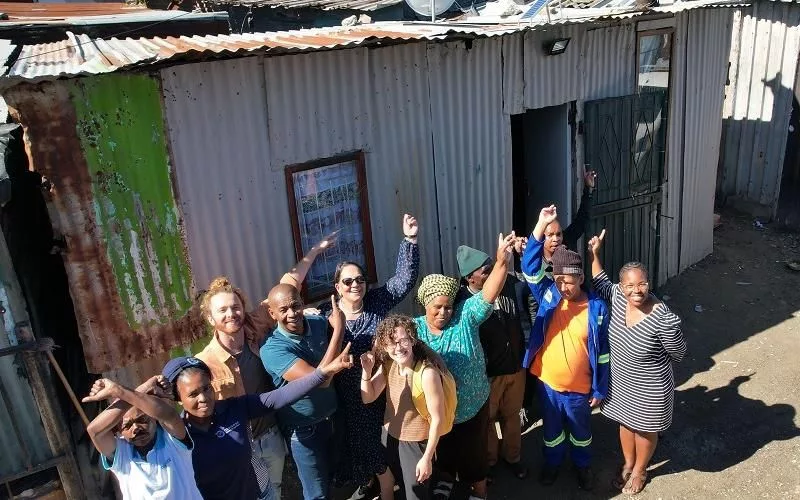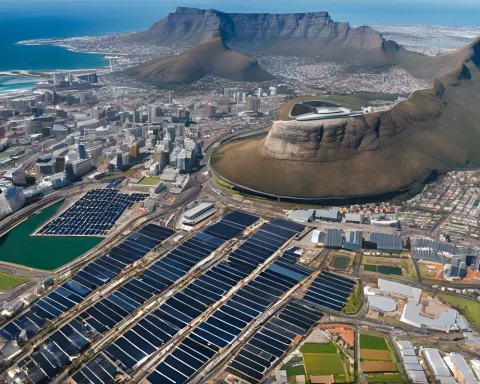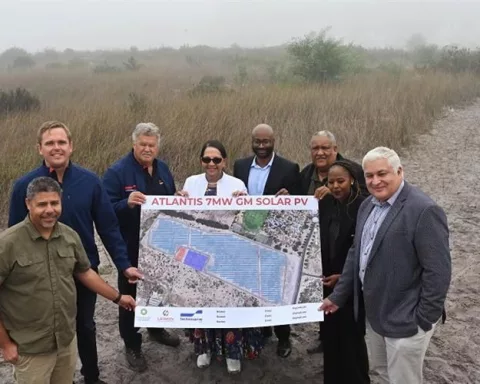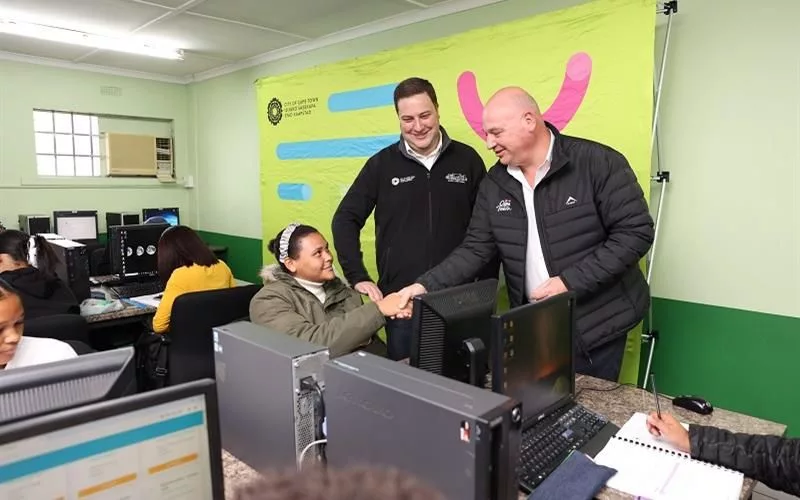Solar-powered illumination systems are being used to light up marginalized communities in Cape Town, providing safety, security, improved quality of life, prolonged working hours for local businesses, educational opportunities, ecological benefits, lessened fire hazards, and improved respiratory health. The initiative is part of the City’s latest Urban Energy Poverty Alleviation Programme and is being explored in areas where traditional electrification methods are not feasible. The potential of solar power is immense, and the City’s dedication to this mission is apparent in its combined approach with grassroots experts and partners.
Groundbreaking solar energy is being used to light up marginalized communities in Cape Town. The city administration is exploring the potential of solar-powered illumination systems, which provide a trio of advantages to the inhabitants, the ecosystem, and the local economy. The benefits of solar-powered illumination include safety and security, improved quality of life, prolonged working hours for local businesses, educational opportunities, ecological benefits, lessened fire hazards, and improved respiratory health. This initiative is included in the City’s latest Urban Energy Poverty Alleviation Programme.
A Revolutionary Undertaking
In a bold and creative bid to brighten the lives of individuals dwelling in marginalized communities across the metropolitan, the city administration has initiated an exploration of the capabilities of solar-powered illumination systems. This undertaking kicked off with a profound trip to PJS, a marginalized community in Khayelitsha, to cultivate a deeper comprehension of the ongoing solar power project and the future lighting prospects for this area.
At the forefront is Councillor Beverley van Reenen, the Mayoral Committee Member for Energy, supported by city officials and Dr. Yael Borofsky. They are in partnership with Lightup, a renowned organization for its revolutionary contributions in providing alternative illumination solutions. So, what was the objective of their visit? It was to connect with the community and to apprehend the implications of introducing solar-powered lighting systems in the vicinity.
Breaking Barriers with Solar Energy
The potential of solar-powered illumination in marginalized communities is immense. This potential goes beyond just lighting, providing a trio of advantages to the inhabitants, the ecosystem, and the local economy. This initiative is included in the City’s latest Urban Energy Poverty Alleviation Programme, a progressive plan to explore alternative energy solutions in areas where conventional grid-connected electrification is not achievable.
Traditionally, the City and its associates have assisted several communities in adopting solar lighting solutions where the formal electricity supply is impractical. A notable success has been the electrification of almost all the older established marginalized communities within the City’s supply zones. However, hurdles still exist with newer settlements, often situated on lands not suitable for traditional electrification methods, including wetlands, ponds, and nature reserves.
Power Quest: A Necessity, Not a Luxury
The quest for power is more of a critical necessity for enhancing the living conditions and less of a pursuit of luxury. It also helps in preventing risks like fire outbreaks often triggered by open, unattended flames. The City’s dedication to this mission is apparent in its combined approach with grassroots experts and partners.
Past trips to areas like Blackheath and QQ Section in Khayelitsha, in partnership with iShack and Zonke, have provided insights into the future possibilities of solar lighting projects in the region. These trips act as stepping stones in the exploration of feasible solutions for more un-electrified regions in the forthcoming months.
Councillor van Reenen eloquently expressed the vision, “By delivering safe, sustainable, and affordable solutions in communities, our solar lighting projects can make an immediate impact and dramatically enhance the lives of residents in marginalized settlements.”
The Many Perks of Solar-Powered Illumination
The benefits of solar-powered illumination in marginalized settlements are manifold:
– Safety and Security: Improved visibility substantially lessens crime and mishaps.
– Enhanced quality of life: Consistent lighting improves the living conditions of inhabitants.
– Prolonged working hours for local enterprises: Local businesses can function for extended hours, stimulating the local economy.
– Educational opportunities: Reliable lighting extends study hours for students, fostering education.
– Ecological benefits: Solar power is a clean, renewable energy source, lessening the carbon footprint.
– Lowered fire hazards: With electricity, the requirement for open flames decreases, reducing the risk of fires.
– Health improvement: The eradication of smoke from open fires leads to better respiratory health within the community.
A Promising Future
This trailblazing initiative signifies a substantial step in the City’s pledge to alleviate energy poverty and brighten the lives of its most susceptible residents. The journey has only started, and the route is brilliantly illuminated by the promising radiance of solar power.
What is the Urban Energy Poverty Alleviation Programme?
The Urban Energy Poverty Alleviation Programme is a progressive plan by the City of Cape Town to explore alternative energy solutions in areas where conventional grid-connected electrification is not achievable.
What are the benefits of solar-powered illumination in marginalized communities?
The benefits of solar-powered illumination include safety and security, improved quality of life, prolonged working hours for local businesses, educational opportunities, ecological benefits, lessened fire hazards, and improved respiratory health.
What is the potential of solar-powered illumination in marginalized communities?
The potential of solar-powered illumination in marginalized communities is immense, and it goes beyond just lighting, providing a trio of advantages to the inhabitants, the ecosystem, and the local economy.
Why is solar power essential for marginalized communities?
Solar power is essential for marginalized communities as it is a critical necessity for enhancing living conditions and preventing risks like fire outbreaks often triggered by open, unattended flames.
Who is involved in the solar-powered illumination projects in Cape Town?
Councillor Beverley van Reenen, the Mayoral Committee Member for Energy, is at the forefront of the solar-powered illumination projects in Cape Town, supported by city officials and Dr. Yael Borofsky. They are in partnership with Lightup, a renowned organization for its revolutionary contributions in providing alternative illumination solutions.
What are the ecological benefits of solar power?
Solar power is a clean, renewable energy source, lessening the carbon footprint, and providing ecological benefits.












